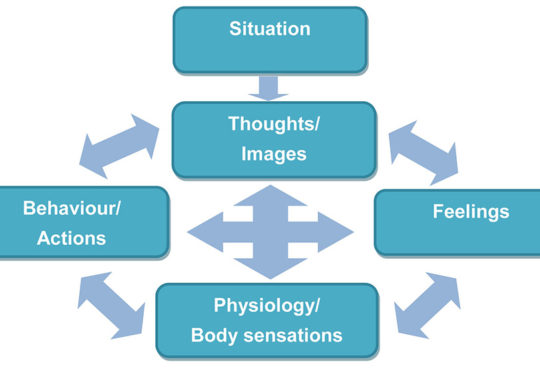There are a whole lot of groups, web pages, books etc offering tools and techniques to ‘manage’ anger. There are jaw relaxing techniques, breathing techniques, snapping, tapping and counting techniques – the list goes on…
In the therapy world we will often get clients who say that they are looking for ways to “manage their anger”. My answer to this is that, if there was a quick, easy way, they would probably have found it by now given all these techniques readily available at the click of a mouse or turn of a page.
Tools and techniques can help a person calm down in that moment but what they can’t do is stop you getting angry in the first place. So, if you feel that your anger is causing you a problem, in order to ‘manage’ it you need to explore what is behind your anger.
So, in this blog, I’m offering you a few ways that can help you to start to explore your anger…
Firstly ask yourself – am I really angry?
Weird question right? Actually no. A lot of the time people use anger to cover up other emotions that they may be feeling. I know sometimes when I’m feeling really anxious about something I can get very snappy with my husband (sorry Pete). I’m not really angry at him it’s just an easy (but unhealthy) outlet for my anxiety.

So the next time you feel yourself becoming angry at someone or something ask yourself this question:- ‘am I really angry at this person or situation or is there another emotion that the anger might be covering up?’. Am I feeling rejected, judged, disappointed, sad, anxious, overwhelmed…? If you realise that your anger is actually covering up a different emotion – or whole host of emotions – then that is what you need to work on – not the anger.
Is anger your defence?

So, this is closely related to the question above, where you are not really angry but anger has become your ‘go to’ defence mechanism. Often people have developed a learned behaviour of using anger to “manage” their social relationships. For example, someone who finds it hard to get close to others can often deliberately start fights in a relationship in order to sabotage it. Or a person can use it to pretend they don’t really care about other people to never get into a close relationship in the first place. It can also be used as a preemptive strike by people who have come to fear rejection – to strike first because they are worried that the other person is about to strike. If any of these sound like the reason you might be using anger then exploring the reason for your defences and working on getting a better balance to them is the place to start.
Have you been ‘hooked’?
This one can be hard for some people to admit but, if you have found yourself really angry at someone else for something they have said, and you can’t seem to let it go, then it can often be because they have ‘hooked into’ a belief you hold about yourself. Let me explain… If someone turned around to me and said “you’re totally useless” I would probably be hurt and a bit angry about that but, if I didn’t believe that I was totally useless, I would probably be able to shrug this off quite easily. However, if a part of me held a belief that I was really totally useless then the taunt would stay with me and I might dwell on it. This would cause me to stay angry for longer. It would hook me.

So, if you find that certain things that people have said have made you really angry, maybe ask yourself whether there is a part of you that believes what they are saying – a part of you that is getting hooked. It may not be a valid belief but you may hold it anyway – it might be a learned belief from your past. If so, then that belief is what you need to work on.
Is your anger righteous?
Often clients will say something like ‘this sounds bad but… I’m really angry at my mother for not being there when I was young’ to which I will answer ‘why does that sound bad’? I think we have decided as a society that it is not right for us to be angry – that anger is a negative emotion. This is not the case. Anger can be a very good and helpful emotion. If we didn’t have anger in the world then there would still be slavery, women wouldn’t have the vote, racism would be rampant, people would get away with abuse etc etc. When things are wrong, or unjust, an appropriate response is to be angry about it. This is called righteous anger. If a client is telling me that they want to ‘make peace with’ or ‘come to terms with’ something wrong, unjust, or bad that happened to them I ask them whether it should ever be ‘ok’ that it happened. I also ask them whether, if they saw the same thing happening to a child now, would they ‘make peace with it’ or would they be angry about it. Often they will tell me that they would obviously be angry about it.

So, the first question to ask yourself is, do I actually have a right to be angry? Is this a normal reaction to this situation? A good way to answer the question is to ask yourself this:- If your best friend was in the same situation, or had been through the same experiences, and they told you they were angry about it would you think they were wrong or would you tell them it was ok to be angry. If you would tell them it was ok then you have your answer. It might not change anything but sometimes we just need to allow ourselves to be angry.
Is there a way I can use this?
As I stated in the previous section, I do not believe that anger is a bad or negative emotion. Anger has often been the starting point for much needed change. So, if you have figured out that you are angry and it is a righteous anger, then ask yourself whether there is anything that you want to try and change? If so then use your anger to motivate that change. If you are being bullied by someone at work you could look into what you are able to do about that or use the anger to motivate you to look for a new job. If you have been racially abused could you use that anger to fuel societal change?
What outlet do you have?
As I will keep saying anger is not a bad emotion. However, there can be healthy and unhealthy ways to express anger. So, if you are angry, what outlet do you have for your anger? Healthy outlets for anger can involve activities like running, going to the gym, dancing energetically, singing loudly, screaming, punching a punchbag, writing in a diary, going for a walk etc. Everyone is different so you’ll have to find what works for you.

Support.
Throughout this piece I have talked about ‘working on’ any underlying issues that you might be having. If you are struggling to do this by yourself then I would advise to speak to a talking therapist. The reason we are here is to explore these issues with people and support them to make any changes they want to make. It is not weakness to seek the guidance and support of someone who is trained in these areas it is wisdom!
If you need to know how to find a therapist in your area then just contact me through the website, or Facebook, and I can give you details of how to find a qualified professional.






Sorry, the comment form is closed at this time.